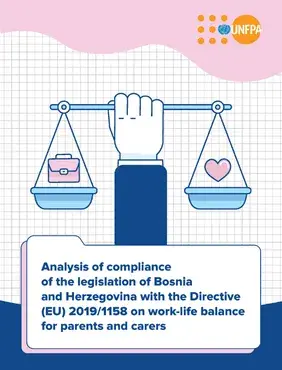Although there are numerous relevant international standards in this sphere, which should be adhere to and implemented in order to create a framework of gender-responsive family policies, and which would create equal opportunities for women to participate equally in the labour market, the focus of the overview of obligations, for the purposes of this analysis, is placed on the standards of the European Union law, which are certainly a reflection of other relevant international obligations in this area. Within the European Union, various documents promote the principle of gender equality, and rights related to motherhood and fatherhood, primarily through labour relations. In addition to the regulation of these rights in the Charter of Fundamental Rights of the European Union and the European Pillar of Social Rights, there are several important European Union Directives aimed at harmonizing, i.e. creating a balance between professional, private and family life. These are primarily the Directive 2019/1158 on work-life balance for parents and carers and the Directive 92/85/EEC on the introduction of measures to encourage improvements in the safety and health at work of pregnant workers and workers who have recently given birth or are breastfeeding. In addition, Directive 2006/54 on Part-time Work refers to issues of indirect discrimination against women at work, and Directive 97/81/EC deals with discrimination against those who work part-time. The link between measures aimed at creating a work-life balance for parents and the gender equality principle is explicitly recognized in the EU law.
WHO WE ARE
Analysis of compliance of the legislation of Bosnia and Herzegovina with the Directive (EU) 2019/1158 on work-life balance for parents and carers

Publisher
Number of pages
9
Author
UNFPA
Publication
Analysis of compliance of the legislation of Bosnia and Herzegovina with the Directive (EU) 2019/1158 on work-life balance for parents and carers
Publication date
16 October 2023

